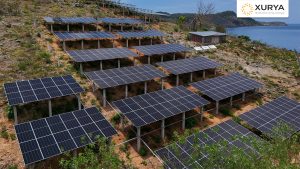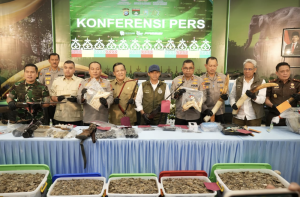Jakarta – According to Global Energy Monitor’s (GEM) Still Digging 2025 report, Indonesia is strengthening its position as the country with the largest coal mine expansion in Southeast Asia. The report notes that Indonesia is developing new mining projects with a capacity of 31 million tonnes of coal per year (Mtpa).
A total of 15 million tonnes is already under construction, while the rest is still in the planning stage. The majority, around 94%, is intended for thermal coal used for power generation. Not only that, the government is now aggressively exploring domestic metallurgical coal (coking coal) reserves to reduce import dependence from Russia, Australia and China. This coal mining expansion is risky for Indonesia.
According to the GEM report written by Dorothy Mei, Tiffany Means and Wynn Feng in early August, with China and India absorbing nearly two-thirds of Indonesia’s coal exports by 2023, the sector faces economic risks and the threat of becoming a stranded asset. The findings put Indonesia in the top eight list of countries with the largest mining capacity additions globally. Although China still leads with an additional 1.35 billion tonnes, Indonesia contributes a significant portion in the Asian region, along with Pakistan.
This situation is considered ironic because coal expansion directly contributes to increasing greenhouse gas emissions, primarily methane. If all coal mining projects under development in 30 countries – including Indonesia – go ahead, an estimated 15.7 million tonnes of methane will be released each year. That’s equivalent to 1.3 billion tonnes of CO₂ equivalent (CO₂e), higher than Japan’s total annual emissions in 2022.
Indonesia is one of 21 countries that have signed the Global Methane Pledge. However, the GEM report highlights that few countries have concrete plans to mitigate methane emissions.
The report noted that if these countries are genuinely committed to their climate targets, the solution is not to continue coal mine development with vague mitigation actions, but to stop new projects entirely. They said the most effective strategy for this is to keep the coal in the ground.
This expansion is also considered economically risky. Indonesia’s coal export market, which has relied on China and India, two countries that absorb almost two-thirds of exports, is starting to falter. Beginning in 2025, Indonesia’s coal exports plummeted to the lowest point in the last three years due to the increasing domestic production of the two countries.
Wicaksono Gitawan, Policy Strategist from CERAH, questioned the direction of the Indonesian government’s policy that encourages coal expansion when other countries are starting to abandon it. “Instead of coal expansion, the government should start seriously preparing policies and concrete steps to increase renewable energy capacity more massively and stop the excessive use of coal,” he said. (Hartatik)
Banner photo: shutterstock.com















